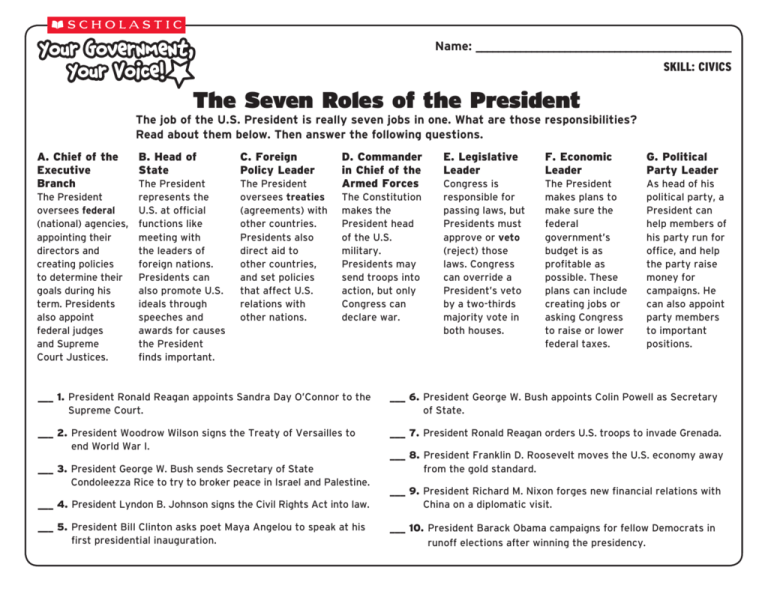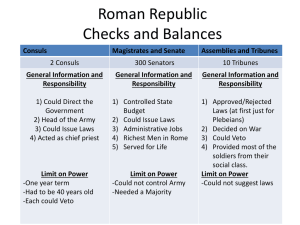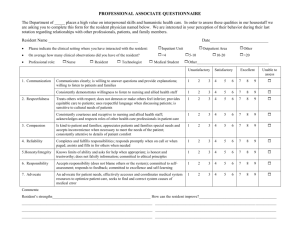The Seven Roles of the President
advertisement

Name: ______________________________________________ SKILL: Civics The Seven Roles of the President The job of the U.S. President is really seven jobs in one. What are those responsibilities? Read about them below. Then answer the following questions. A. Chief of the Executive Branch The President oversees federal (national) agencies, appointing their directors and creating policies to determine their goals during his term. Presidents also appoint federal judges and Supreme Court Justices. B. Head of State C. Foreign Policy Leader The President represents the U.S. at official functions like meeting with the leaders of foreign nations. Presidents can also promote U.S. ideals through speeches and awards for causes the President finds important. The President oversees treaties (agreements) with other countries. Presidents also direct aid to other countries, and set policies that affect U.S. relations with other nations. D. Commander in Chief of the Armed Forces The Constitution makes the President head of the U.S. military. Presidents may send troops into action, but only Congress can declare war. E. Legislative Leader F. Economic Leader G. Political Party Leader Congress is responsible for passing laws, but Presidents must approve or veto (reject) those laws. Congress can override a President’s veto by a two-thirds majority vote in both houses. The President makes plans to make sure the federal government’s budget is as profitable as possible. These plans can include creating jobs or asking Congress to raise or lower federal taxes. As head of his political party, a President can help members of his party run for office, and help the party raise money for campaigns. He can also appoint party members to important positions. ___ 1. P resident Ronald Reagan appoints Sandra Day O’Connor to the Supreme Court. ___ 6. P resident George W. Bush appoints Colin Powell as Secretary of State. ___ 2. P resident Woodrow Wilson signs the Treaty of Versailles to end World War I. ___ 7. President Ronald Reagan orders U.S. troops to invade Grenada. ___ 3. P resident George W. Bush sends Secretary of State Condoleezza Rice to try to broker peace in Israel and Palestine. ___ 8. P resident Franklin D. Roosevelt moves the U.S. economy away from the gold standard. ___ 4. President Lyndon B. Johnson signs the Civil Rights Act into law. ___ 9. P resident Richard M. Nixon forges new financial relations with China on a diplomatic visit. ___ 5. P resident Bill Clinton asks poet Maya Angelou to speak at his first presidential inauguration. ___ 10. P resident Barack Obama campaigns for fellow Democrats in runoff elections after winning the presidency.





